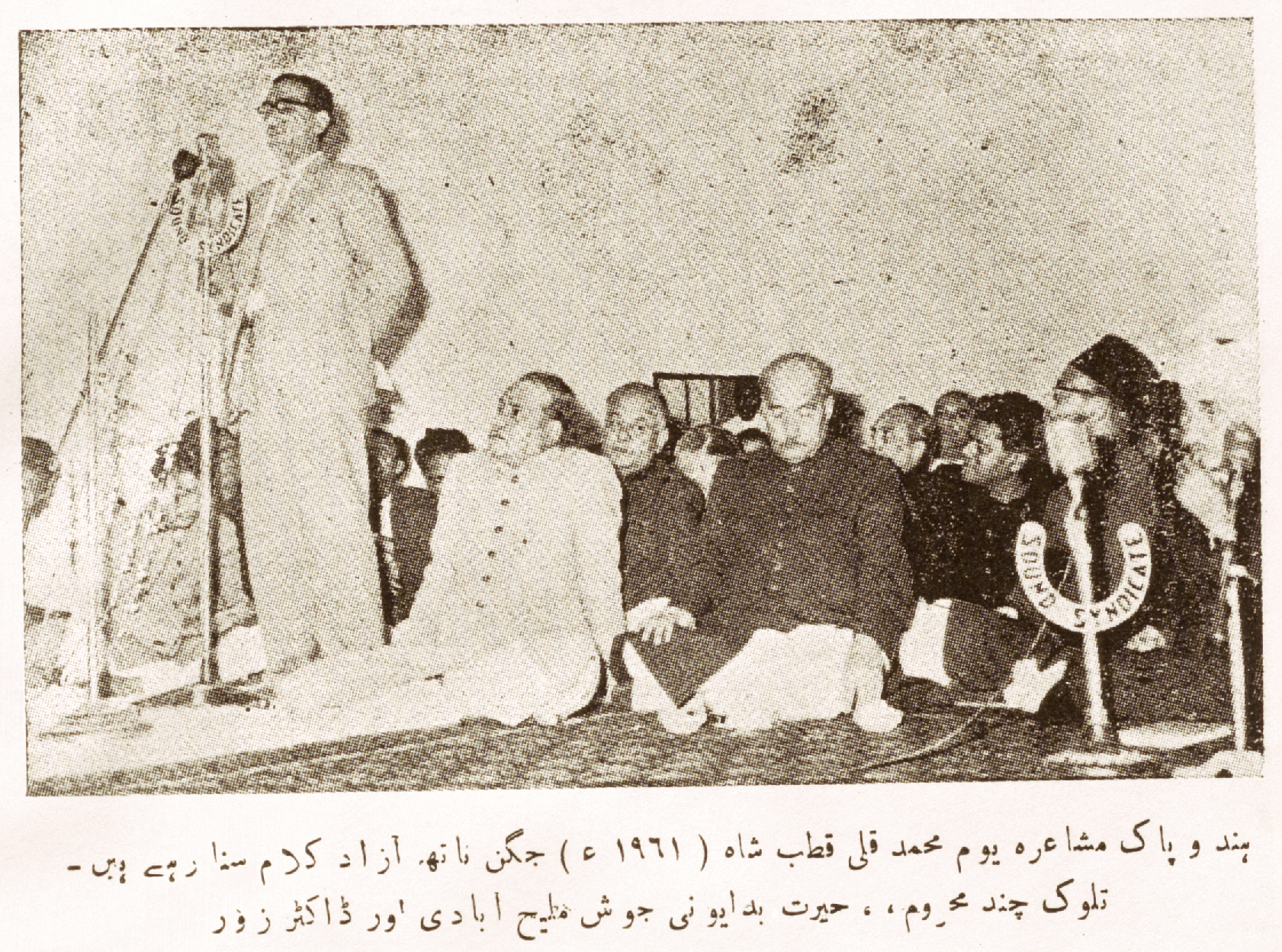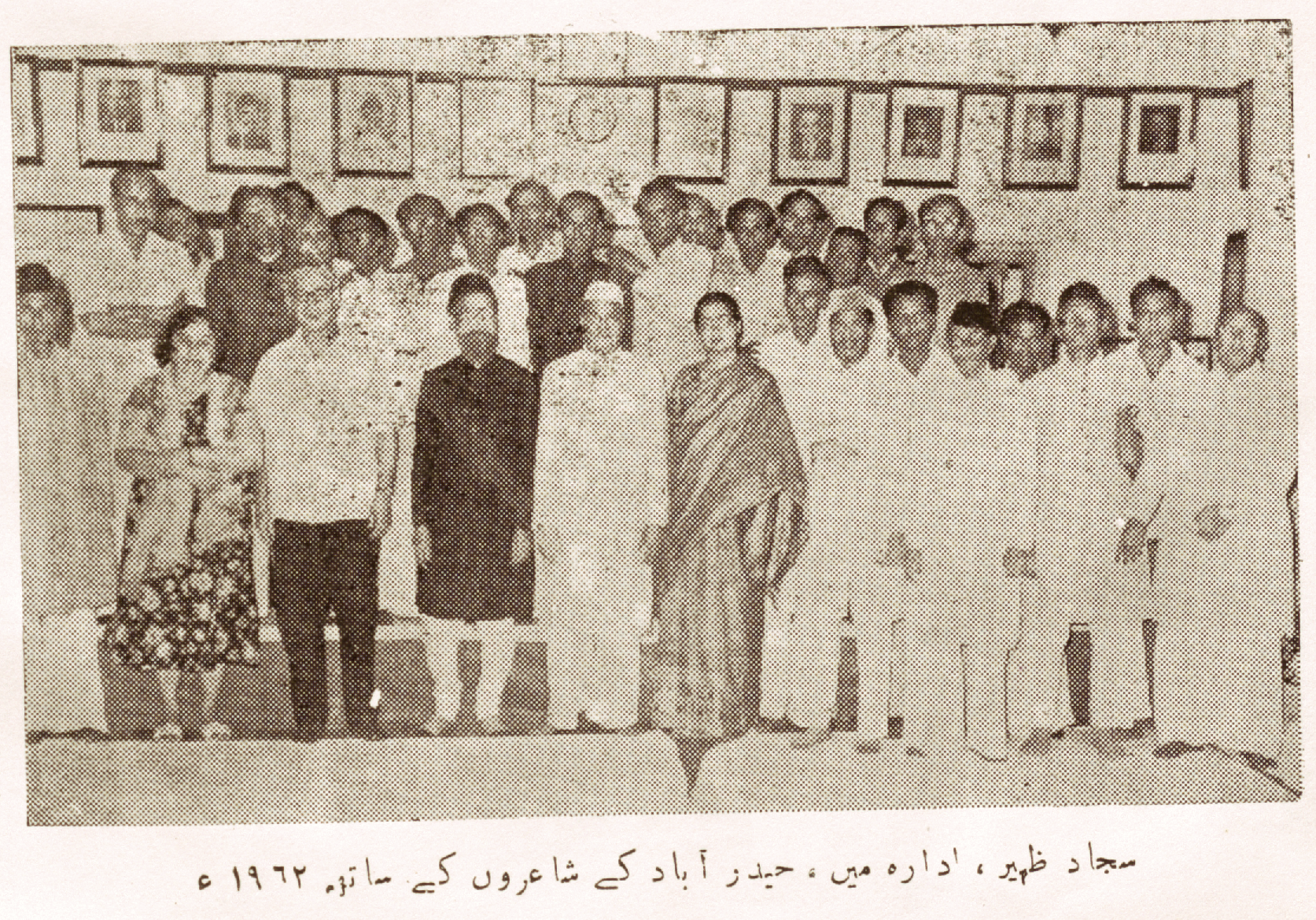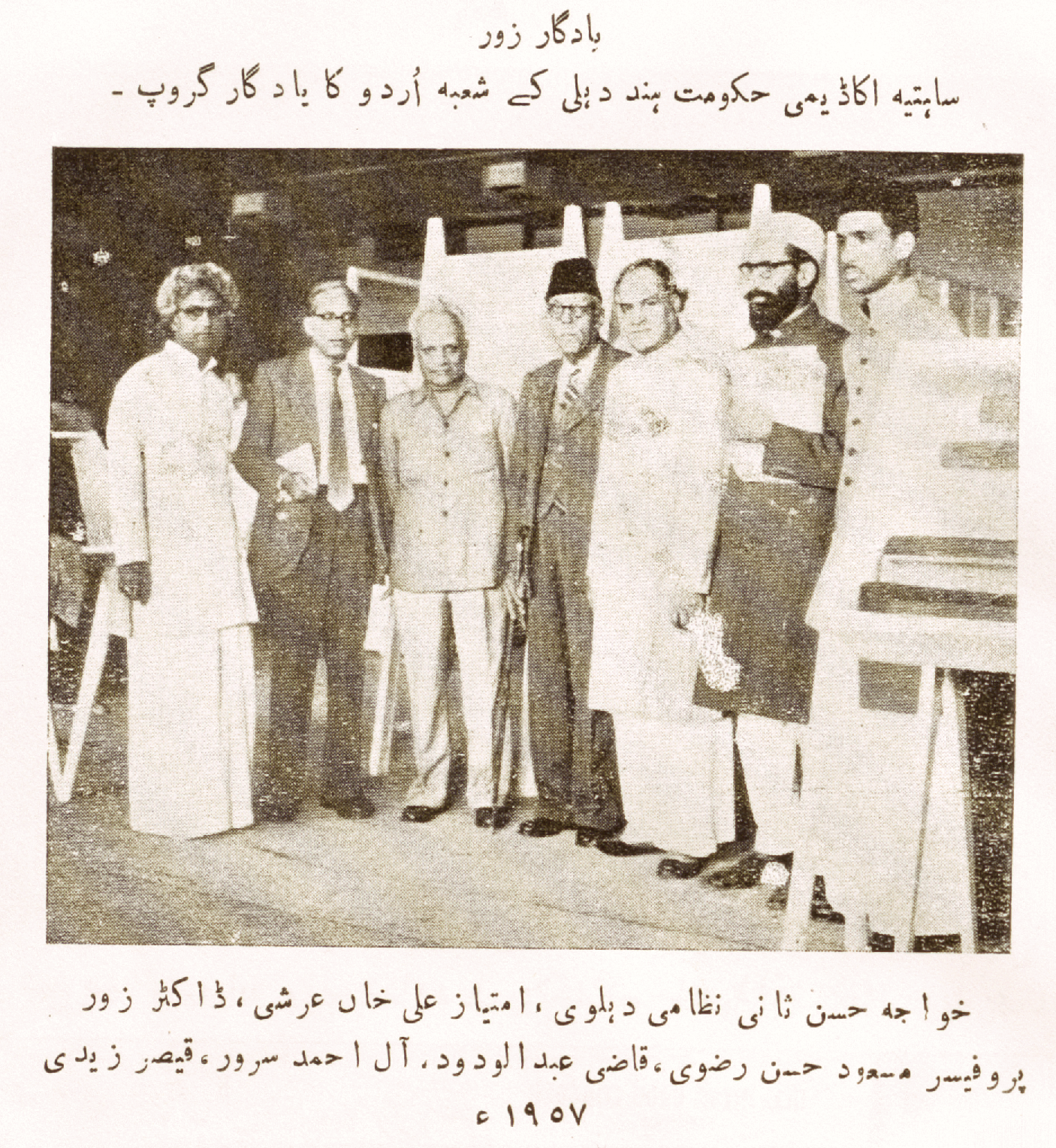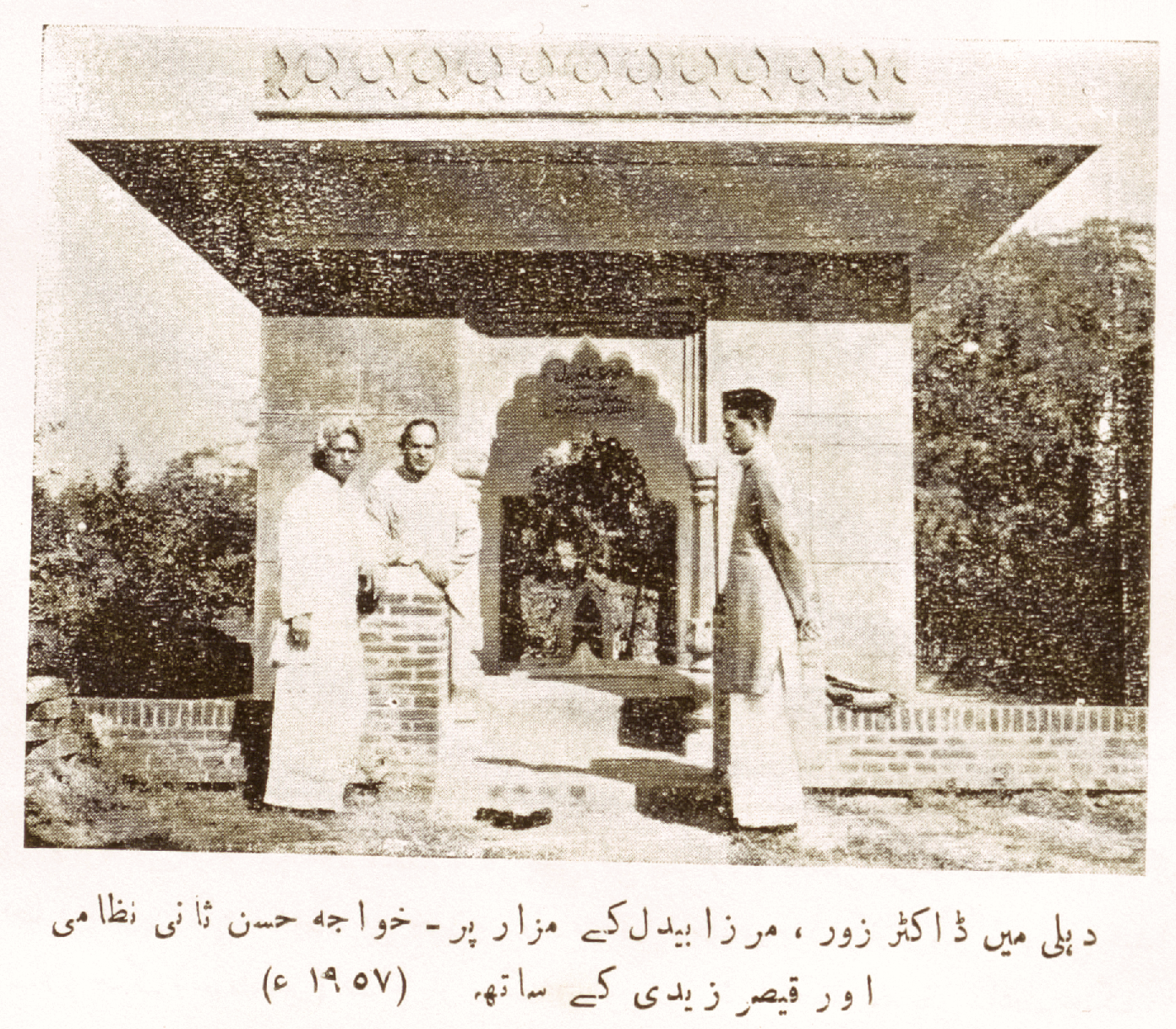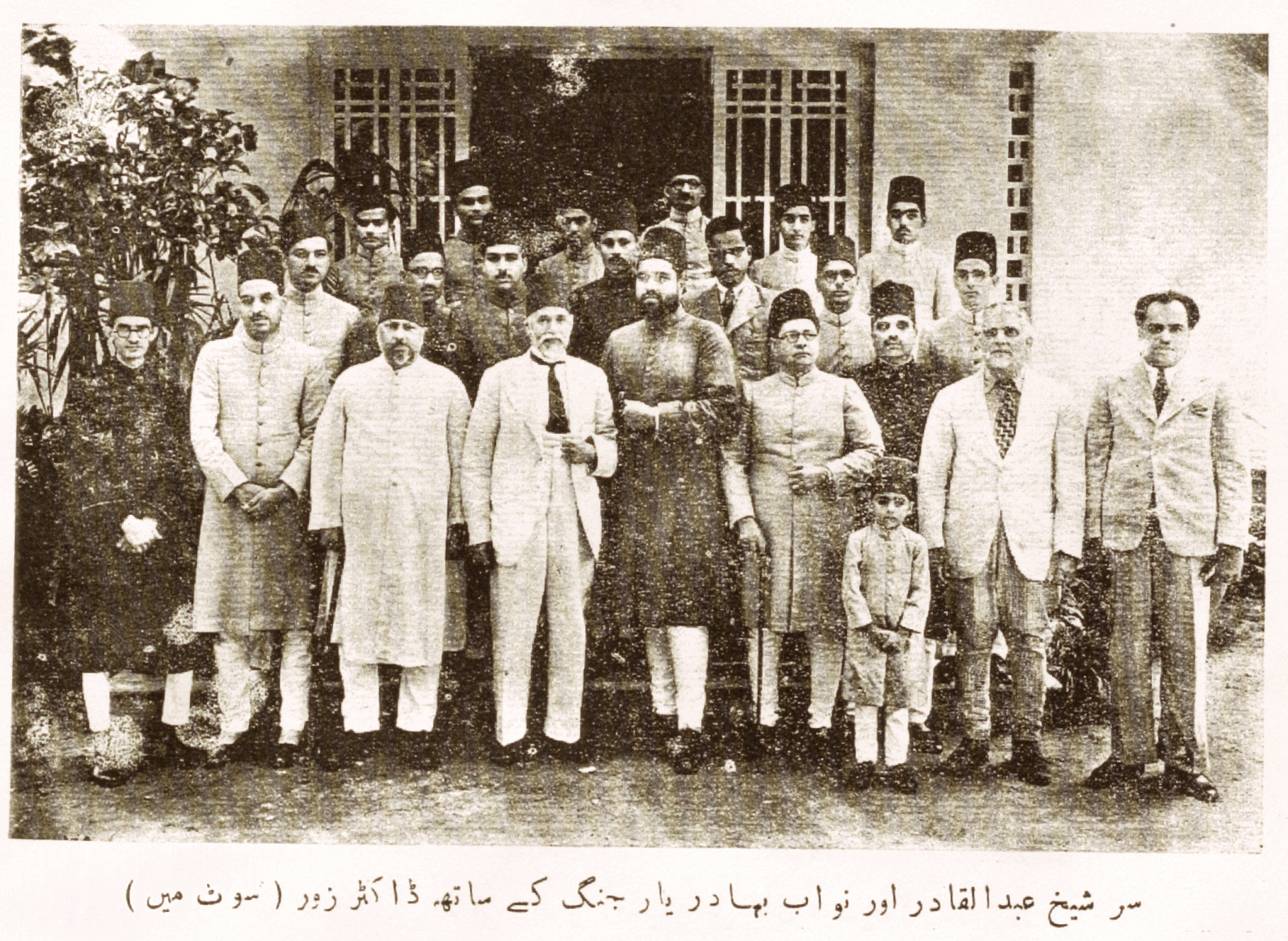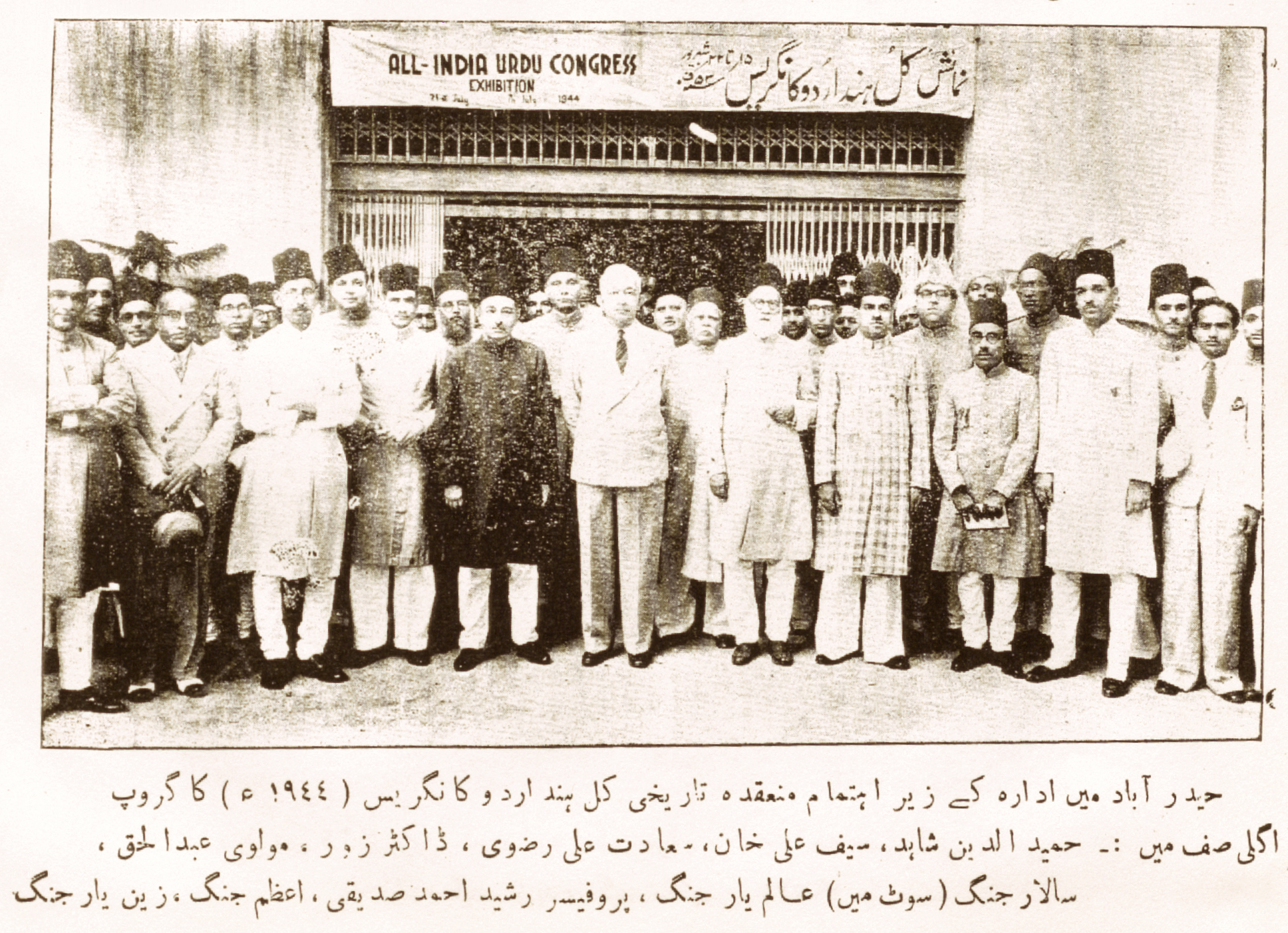Zor Sahb
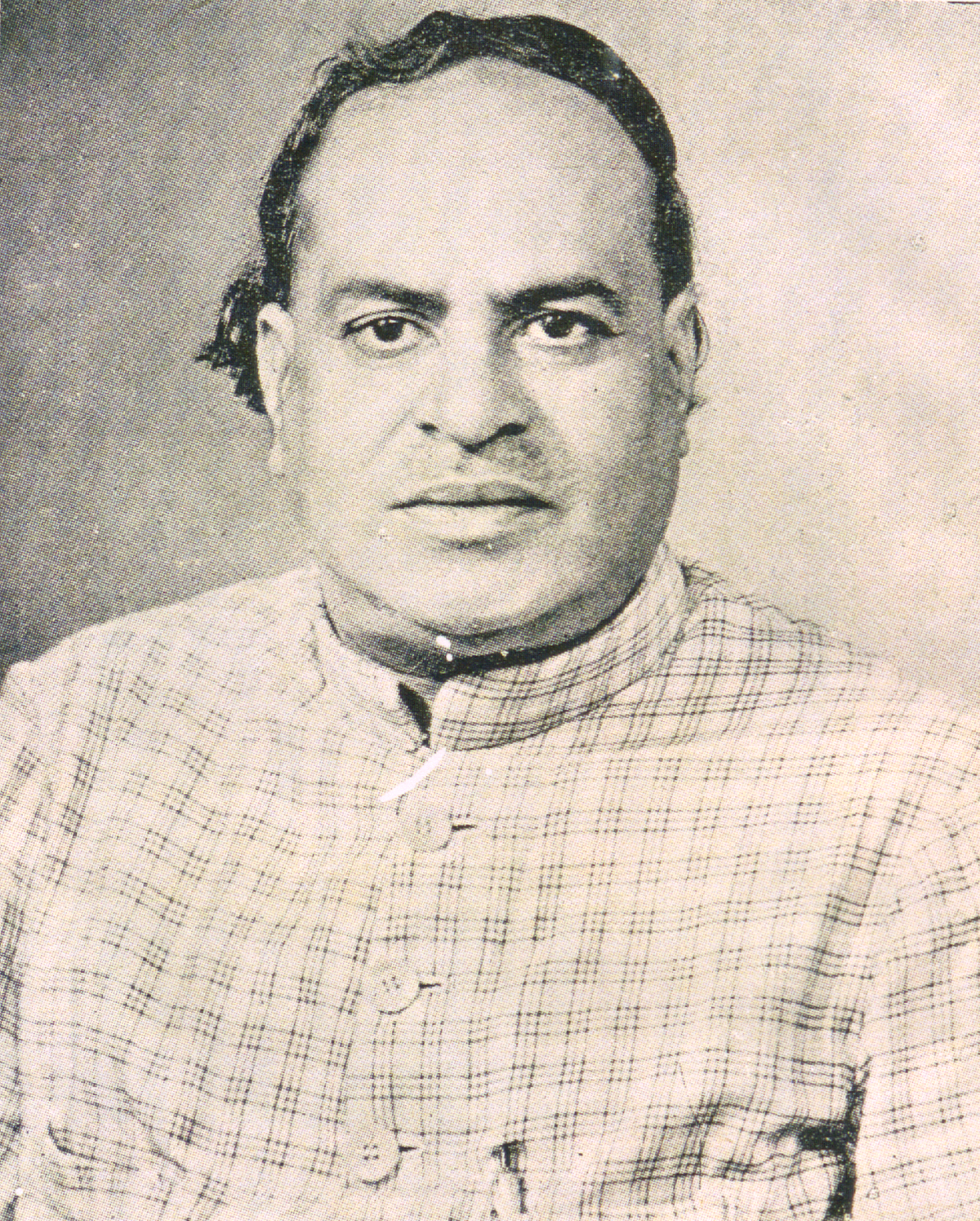
Twentieth Century Hyderabad, was a centre for construction of new modes of being, belonging and citizenship around the cultural geography of the Deccan. Being at the intersection of Persianate and the European networks of knowledge production, Hyderabad fostered cross pollination of these worlds. This was reflected in many of the institutions of this time, such as Asafia Library, Osmania University, Jamia Nizamia, Lutfuddowla Research Institute, and Darululoom. Dr. Syed Mohiuddin Qadri Zor was a modernist intellectual working in this context.
Dr. Zor had a vision to develop a multilingual institution to foster serious research on the history, culture, and society of Hyderabad. This pursuit took many directions. He compiled more than thirty books in his lifetime and published over three hundred books as a publisher. He sponsored the first Deccan history congress in 1943 and first Urdu congress in 1944, being one the first scholars to argue that the Deccan constituted a unique cultural identity in India. He is remembered for championing the idea of Dakhaniyat, a cultural synthesis of plurality.
Dr. Zor and his fellow intellectuals worked towards producing a historically situated identity of the Deccan consisting of shared cultures and communities, at a time when the rest of the subcontinent was seeing a rise in communalism. Dr. Zor went on to establish Idara-e-Adabiyat-e-Urdu in 1931, a pedagogical and intellectual organization which worked towards the spread of modern ideas among the youth and also undertook publication of scholarship on various aspects of society during the mid-twentieth century.
